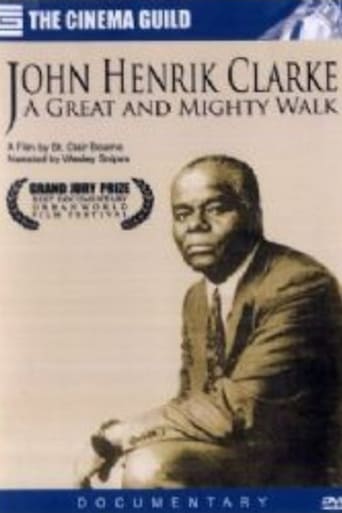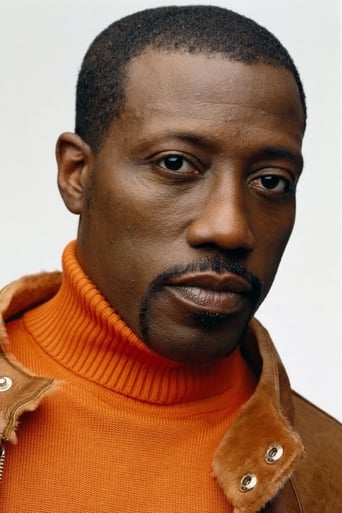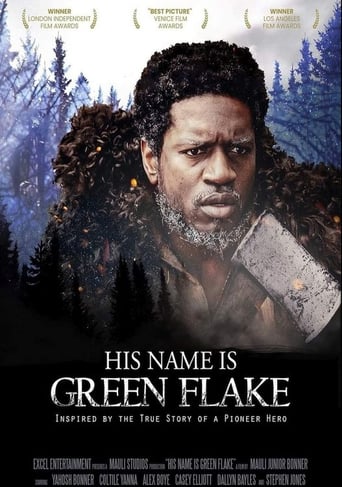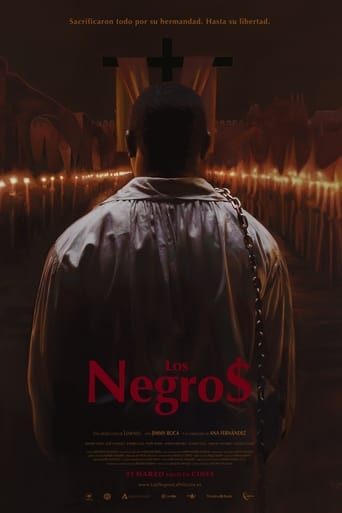John Henrik Clarke: A Great and Mighty Walk (1996)
John Henrik Clarke talks about Black history.
Watch Trailer
Free Trial Channels
Cast


Similar titles
Reviews
Beautiful, moving film.
The biggest problem with this movie is it’s a little better than you think it might be, which somehow makes it worse. As in, it takes itself a bit too seriously, which makes most of the movie feel kind of dull.
A film of deceptively outspoken contemporary relevance, this is cinema at its most alert, alarming and alive.
While it is a pity that the story wasn't told with more visual finesse, this is trivial compared to our real-world problems. It takes a good movie to put that into perspective.
I have seen the Clarke documentary more than 10 times and always see or hear new insights from this great genius of a man! His liberating approach to African history and its impact on the world stage has freed me to utilize his innovative approach in something as seemingly mundane as Sunday School. The inclusion of African history in my Sunday School teachings (thanks to Dr. Clarke) has contributed to an explosion of attendance and constructive input. I will continue to watch this magnificent piece of cinematic work whenever I can find it. Dr. Clarke's spirit literally breathes life into Bible teaching every Sunday in my neck of the woods.Thank God for blessing us with his liberating mind!
This documentary consists almost entirely of the octogenarian, and totally blind from glaucoma, John Henrik Clarke talking to the camera, backed up by old film clips and still photos. We hear at length Mr. Clarke's ideas regarding black nationalism, pan-Africanism and the like while learning almost nothing about Clarke as a person. He tells us that he earned a Ph.D., but we don't learn from where, and that he taught, but we don't learn where. We don't even learn if Clarke was married, has children, where he has lived since age 18, or any of the usual stuff of documentaries. We learn of his admiration for Marcus Garvey, Malcolm X, and Kwame Nkrumah and of his reservations about Martin Luther King (he thinks King was wrong to adopt non-violence as a philosophy). Clarke tells us that history has been dominated by a Eurocentric perspective (undoubtedly true), that black history has been egregiously neglected (undoubtedly true as well), that Africa was ravaged by the slave trade and colonialism (also undoubtedly true), and advocates a pan-African, black nationalist perspective. Fine--that is a respectable point of view, and he is certainly entitled to his opinion. What he is not entitled to do, however, is to distort history, which he does throughout this documentary. Here are some of his assertions, which are at best dubious and at worse demonstrable falsehoods:1) He states that the civilization of ancient Egypt was a black civilization, but offers not one whit of evidence to support this. 2) He states that the ancient Carthaginian civilization, and Hannibal, were black, but again offers no evidence to support this. 3) He states that Egyptian civilization was the crowning glory of the ancient world, an assertion that is absurd by any reasonable standard. In fact, most people would have to strain to recall any lasting intellectual contributions made by the Egyptians, whose civilization was dwarfed intellectually by those of Greece and Rome. 4) He states that Carthage was conquered by "a group of thugs who weren't very well educated--the Romans." Absurd: he is talking about the civilization of Vergil, Cicero, Marcus Aurelius, for any of whom there is no equivalent in the Carthaginian legacy. 5) In perhaps the most absurd, and demonstrably erroneous, assertion of all, he states that the fall of Rome was brought about in large part by the rise of Islam, and that Rome was defeated by the Arab Moslems when they invaded North Africa. Fact: Rome fell in 476 as a result of invasions from Gothic tribes from what is now Germany. Islam didn't originate until 632, and the Islamic conquest of North Africa didn't occur until the century after that, so Clarke is off by over 150 years. 6) Clarke states that W.E.B. DuBois was the greatest mind that America has ever produced. Well, he's entitled to his opinion, but he offers no evidence to support this point of view.I could go on, but I'll stop here. The film has some merit in that it presents an alternative to Eurocentrism, but this merit is far outweighed by its outright distortions of fact. In all, a mediocre film at best. 5/10
An Afrocentric perspective is necessary for a true understanding of the interconnectedness of all peoples of the world. By teaching from an Afrocentric perspective, a legitimate but misunderstood philosophical and academic discipline, we, as citizens of the world, gain additional insight to the contributions that African people have made to humanity. Clarke was one who recognized that African people were misrepresented by scholars in the post-imperialist era, when scholarship regarding people of African origin was suppressed and almost eliminated by colonialism.When status-quo bearers are close-minded to new ideas, particularly the idea of the Ancient Egyptians (Kemetans) as dark-skinned, woolly haired Africans, you wonder if ignorance has played a role in the shaping of such ideas. Afrocentric scholarship, among other things, attempts to return the Kemetans to their rightful place as Africans; imperialism tried to separate north Africa from so-called sub-Saharan Africa because it was felt that Black African people were not technologically sophisticated enough to come up with "civilized" societies. In la Monde Francophone (the French-language-speaking world), Afrocentricity is recognized academically, and the scholars and thinkers, especially the work of the Senegalese Egyptologist and anthropologist Cheikh Anta Diop, are canonized.The closing credits say, "The comments made by Dr. Clarke are not necessarily those of the filmmakers." You may not agree with everything, but even with the evidence presented, you cannot dismiss facts uncovered by Clarke and his contemporaries as fiction. An important documentary, one that will wake you up to the rich possibilities of different perspectives.
Bought this from Radio WBIA drive, and like a Coltrane solo, it truely flipped me. It's not a lecture, from this heavy, heavy weight historian (think he set up the Black and Puerto Rican Dept. at Hunter) and not a biography. It's a flip of both, JC summarises Afrikan history from 10,000 BC to the present day and during this macro overview, he drops his own past of which I knew nothing. And honestly while watching it with me mate, we both felt inspired equaly from the macro Nile Valley civilizations and the struggle this little brother had growing up.I am so glad to have picked this up before he became and ancestor and watch it whenever I feel depressed, and it does help lift me up. zeech









